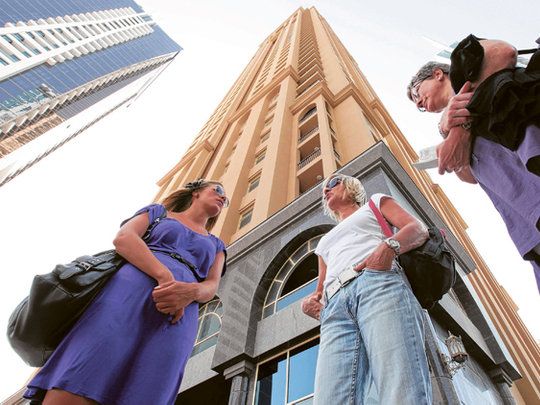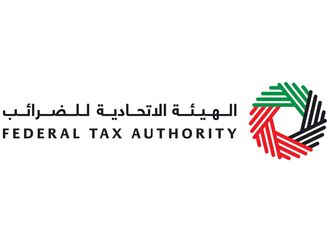
Dubai: Christopher resides in a one-bedroom flat in one of the most sought after prime locations in Dubai. Currently, he's paying Dh8,750 a month for the rent alone, a good 16 per cent less than what he used to pay between 2008 and 2009.
Given all the luxury leisure facilities that come with the rent — swimming pool, gym, sauna, party lounge, entertainment centre and a 24-hour concierge to boot — it seems like Christopher has snagged a good deal.
Or has he? Now 11 months into his tenancy contract, Christopher has spent about Dh30,000 on top of his annual rent. That's excluding the more than Dh15,000 he has invested in home furnishings and electrical appliances so far.
It is indeed a great time for consumers seeking to lease residential properties in the UAE. As rents have considerably declined since the global financial crisis, living in sprawling villas and apartments in the once booming real estate market is now more affordable than ever.
Hefty rates
But, like Christopher, renters could have a rude shock as they find out hidden costs that come with renting a house in Dubai can be hefty. If you add them up, utility bills, security deposits, real estate agency and maintenance fees can be heavy on the wallet and seriously impact anyone's savings goals.
Every month, Christopher shells out more than Dh1,200 for water and electricity, internet and telephone bills, as well as cleaning services. That doesn't include the small fortune (Dh4,000) he was forced to spend to cover the massive wall-to-wall windows when he first moved in, or when the light bulbs needed to be replaced and his kitchen and bathroom sinks got all clogged up.
Just last month, the French expat called in some handymen for a plumbing emergency. The service lasted nearly two hours and cost him Dh400. As it turned out, the landlord had renounced any responsibility for minor maintenance issues in the house.
That's not all. Before he moved into the apartment, he had to put down a Dh1,000 deposit to activate electricity and water connection to his flat, Dh10,500 in broker's fee and security deposit, and Dh300 for contents and tenant liability insurance.
A quick survey done by Gulf News found that UAE residents, regardless of nationality, spend between Dh5,000 and Dh13,300 on startup fees and deposits alone when they move into a new house.
Ronald Ladia, a Filipino resident in Sharjah, put down the initial cash payout to Dh12,000 for a decent one-bedroom house costing Dh28,000 a year.
"That's how much we spent on security deposit which we paid to the landlord, the utility deposit to Sharjah Electricity and Water Authority and the three-month rent which we had to pay in advance," Ladia says.
"It's a big amount for me, considering that I'm just a call centre agent with a meagre salary, and although my wife is working we have other financial obligations to take care of," he says.
Furnishing expenses
For Sharon Pereira from India who is renting a one-bedroom house for Dh58,000 a year in Dubai, the upfront costs reached Dh11,000, excluding furnishings.
However, for Meabh, an Irish expat sharing a three-bedroom flat with two others, the initial cost was only about Dh6,000, since she did not have to pay for maintenance and real estate broker fees.
After the standard fees, there are the furnishing expenses, which can range from Dh5,000 to Dh15,000. Then, there are monthly expenses to take care of.
Depending on the time of year and size of the household, consumers normally spend Dh100 to 1,000 a month on water and electricity bills. Internet and phone bills can be anywhere between Dh300 and Dh500.
And don't forget the maintenance fees. Although Pereira had paid Dh2,500 for the maintenance services, she was once forced to shell out extra money when the water heater broke and there was a major leakage in the bathroom.
"It was during winter and the building maintenance guys said it would take four to five days (to fix it) as they had to assess the situation first and then prepare a quotation, which had to be sent to the landlord's office. I couldn't stay with cold water for four to five days, hence paid for it instead."
Indian expat Ricola Furtado is renting a one-bedroom flat for Dh50,000 a year. Like Pereira, she had paid the maintenance fee, which in her case cost Dh5,000 per annum. However, when her bathroom caught fire because of a short circuit in the exhaust fan, she had to dip into her pockets to buy a new device.
"But the re-tiling and painting was taken care of by the building. Replacing the fan cost me Dh300. Apparently, they claimed that in cases like these, I'd have to buy the device. Maintenance costs cover the fixing, tiling and repainting bit. I was quite shaken by the incident and didn't quite bother to argue," she says.
Sometimes, an apartment that lacks the necessary amenities comes with other added costs. Furtado's flat doesn't have gym facilities and she spends Dh400 a month to exercise at a popular fitness centre.
Although that's not something she regrets paying, she would have added Dh4,800 to her savings in a year. "Anyways, it's worth it because they've got nice equipment and the ambiance of being in a real gym is much better than in a standard gym that you normally find in most apartments."
Cheap options available
Depending on the location, studio apartments can now be had for as astoundingly low as Dh15,000 to Dh55,000 a year and one-bedroom flats for Dh23,000 to Dh120,000 per annum. Anyone with enough budget can also easily snatch a two-bedroom villa for Dh60,000 to Dh120,000 a year.
According to data provided by Asteco Property Management, residential rents started to even out in the last part of 2010, with minimal drops of three per cent for apartments and one per cent for villas.
Falling rents, coupled with a steady supply of residential units, have resulted in increased choice for the renting population and have led to high tenant movement, particularly in the apartment sector. Still, renting for many people remains a costly affair.












